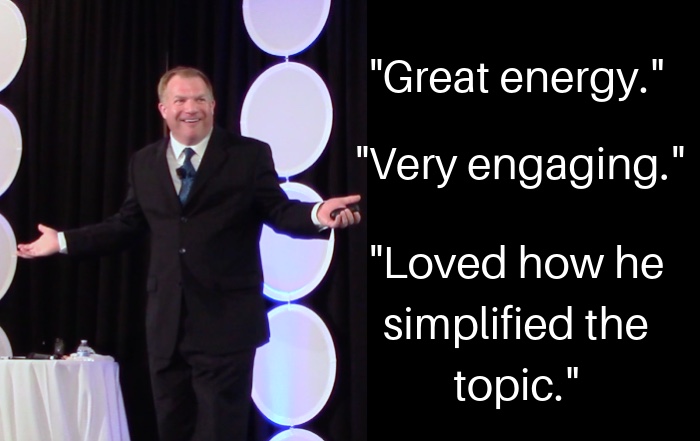 While it is humbling, challenging situations can be great teachers when it comes to performing under pressure. These are those moments when something unexpected forces you to scramble toward success.
While it is humbling, challenging situations can be great teachers when it comes to performing under pressure. These are those moments when something unexpected forces you to scramble toward success.
I learned this important lesson while anchoring and producing a weekend newscast. Very often, there would be a national sporting event shown before our program.
Behind the scenes, the games could be very challenging, especially when the event would unexpectedly run longer than expected.
As a network affiliate, we can’t leave the sporting event to start our show. So you’d have to wait, on set, to see just when it would end. These contests could wrap up suddenly on a made or missed putt.
There were rules surrounding how our newscast would be affected by the delay. For our early evening show, if the sporting event ended before 5:09 p.m., then the network would fill the remaining 21 minutes of programing with post-game coverage.
Your newscast would then air, in full, at 5:30 p.m. This scenario allowed you a chance to chill out for a little while and present your program as you prepared it.
But if the event ended earlier, like at 5:08 p.m., then your newscast would immediately run from that time until 5:30 p.m. That meant you would have to quickly cut about 8 minutes from your program.
I was in charge of making the cuts but this was a big challenge. I’m sitting on set, without a computer, having to make these decisions. In the meantime, I’m also having to read the news.
Whenever you’d have a moment, you’d let the control room know what story should be dropped, find out if there were any public service announcements that could be pulled, and whether you’d need to tell the weather and sports anchors to shorten their segments.
Plus, while you’re dropping stories, they may not have been removed from the teleprompter. So the words you see, looking into the camera, may not be the ones you need to be reading. That meant you had to be keeping up with the changes on the printed copies of your scripts.
5:08 p.m. versus 5:09 p.m. The difference of one minute changed everything.
At first, I wasn’t very good at this challenge, either as an anchor or a producer. Over time, I learned some important steps could make it a more successful process. Some of the following tips may help you in situations where you’re performing under pressure:
Understand the Limitations
A separate producer would have been invaluable when it comes to making last minute changes to the program. And most newscasts have a separate producer and anchor. But on weekends, for budget reasons, one person had to do both jobs.
Sometimes you’ll have a challenge or a limitation that may feel unfair but it’s something that’s out of your control. At a certain point you need to stop worrying about it and just accept it as a tough break.
The underlying challenge wasn’t going to improve by my being upset about not having a separate producer. Every job has its limitations. Are you letting yours define your performance?
Prepare for the Unexpected
As the person who put together the newscast, I could review the lineup, ahead of time, and think about what stories could be dropped if a sporting event ran long.
This didn’t take a lot of effort. And most of the time, I never needed to use the information. But those few minutes of preparation were a great insurance policy for a longer than expected game.
What little preparations can you make that will lessen the impact of a possible future problem?
Own Your Mistakes
The first time sports shortened my newscast, I cut too much from the program. Suddenly we had a new problem, which was a bunch of extra time at the end of the show. That meant I had to do a lot of ad-libbing with the sports and weather anchors, both who were understandably unhappy they had just cut their segments more than was necessary.
Afterwards, I had to hear the complaints and admit that I hadn’t handled the situation very well. I pledged to prepare better the next time. My colleagues immediately lost any hard feelings and understood it was a challenging situation.
When you’re performing under pressure and things don’t go well, it can be tempting to reach into your bag of excuses. But an excuse may be a crutch that keeps you from making a commitment to get better adapting to the challenge.
Experience is Your Teacher
To this day, if I’m watching a game and it’s running long, my blood pressure starts to go up because I know the challenges it may create for a news team. But I also know that if I was magically transported into a nearby newsroom, and put in charge, I’d be able to step in and oversee any last minute cuts to the program.
I had experienced the challenge and eventually embraced performing under pressure in that situation. It was a process and a journey that was never going to start from the finish line.
You could read about it in a book but still not be prepared for that moment when you’re experiencing it.
I also learned some empathy. The view of a challenge from an outside perspective is different from the one experienced by the person who has to make tough decisions under pressure.
Give yourself and others some understanding and support when that moment happens to them for the first time.






